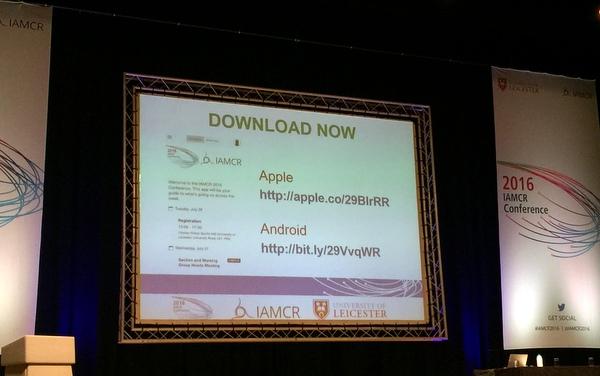
Yaping Xu is a lecturer at China University of Political Science and Law in Beijing. She received a travel grant to present her paper, "The Intersubjective Knowledge-Production on the Great-Leap-Forward Famine in Chinese Oral History Documentary Films", to the Visual Culture Working Group at IAMCR's 2016 conference in Leicester.
My first reason for deciding to travel to IAMCR 2016 was Professor Janet Wasko - however, I found many more reasons during and after the trip.
To me, Professor Janet Wasko emblemises (sorry about the abstraction) the personality of the political economy of film and IAMCR – patient, responsive and active. To flashback, I met Janet in Hong Kong when I was a Ph.D student of the School of Communication in Hong Kong Baptist University, and Janet was invited by Professor Emilie Yeh to give a seminar to us students. That was the first time I encountered a person who was actually doing political economy of film (although I had a friend who was studying political economy of international news). Although she was very kind and patient to listen to students talking about their difficulties of doing research, I felt a great gap between her - or political economy - and students studying communications coming from empiricist and humanities backgrounds. The second time I encountered Janet was at the ICA 2015 conference, when I had graduated from Hong Kong Baptist University with a Ph.D for one and a half year. I felt closer to her, physically and academically - physically as we were standing side by side, academically because I had just presented my paper analysing web-based documentary videos from a political economy perspective. I could not help but invite Janet to have an interview with me and, to my surprise, she accepted. The dialogue was later published in the journal of Communication & Society (in Chinese).
I'd like to say that Janet - and other scholars such as Professor Graham and Professor Vincent - interpellated me to be a subject of the political economy approach. And their books and talks turned me into a scholar who wanted to get involved in IAMCR, an association that preserves a special position for political economy scholarship. I'd like to continue joining the annual conferences of IAMCR to share my studies with like-minded people and know more about the works of other scholars.
I also found many new things at IAMCR 2016. First, the memory studies, especially Dr. Emily Keightly's co-authored research The Mnemonic Imagination motivated me to turn my study on the affect of the political remembrance of the Great-Leap-Forward Famine in China in the present day to a direction that pays attention to the efficacy of the creativity of memorization. I'd like to explore more on Emily's model and assumptions. Second, it was a happy experience of getting together with my old friends, who I got acquainted with in last year’s conference and who were my professors and fellow students (and now colleagues in a general sense). Third, I felt it aspiring to listen to (old and young) scholars talking about their studies, whose methods and findings affected mine. Fourth, I found contact with publishers who were interested in my study. Fifth, I had a chance to experience London where I had not been to before. And sixth, I realized that when it came to the financial thing, each university could be the same.
Finally, I feel greatly encouraged to do quality research in the future and to participate in future conferences of IAMCR.
Yaping Xu
China University of Political Science and Law